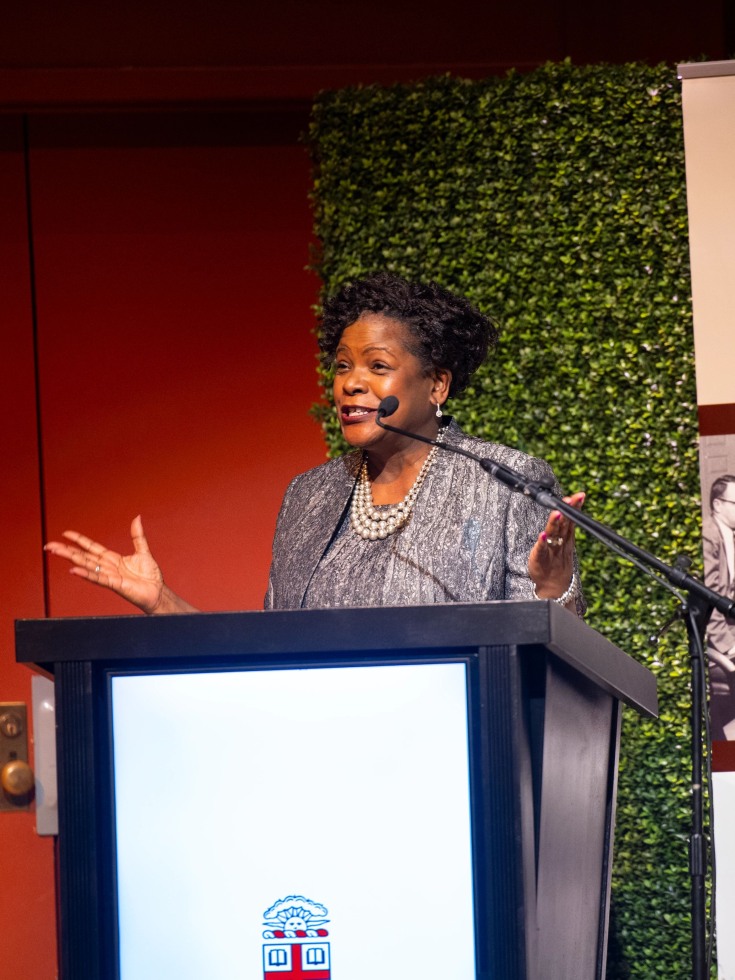_0.jpg)
Sylvia Carey-Butler knows higher education inside and out.
For over four decades, she has been an integral part of America's higher education system — from small community colleges to regional powerhouses and historically Black colleges to traditional Catholic institutions.
Her extensive experience is deeply rooted in her personal history.
On the outskirts of working-class Schenectady, New York, Carey-Butler grew up with eight siblings in a lower-middle-class family. Her formative years were difficult. At the age of two, she lost her father to a drunk driver. Her family lived under the specter of the constant racial tension that characterized much of the 1960’s — an era in America that witnessed the tragic losses of progressive thinkers, both black and white.
Despite these obstacles, she refused to let them define her. She understood early on what she continues to believe: Higher education is the great equalizer.
Finding her voice — and her path to Brown
After high school, Carey-Butler entered the State University of New York (SUNY)-Oneonta as a first-generation college student. Her early experiences on campus not only inspired her to pursue a career in academia but also transformed her into a lifelong advocate for higher education access and the opportunities it provides.
In 2013, she found her voice in the diversity, equity and inclusion (DEI) arena. She merged her academic expertise with her passion for equality as the Assistant Vice Chancellor of Academic Support of Inclusive Excellence at the University of Wisconsin Oshkosh. From there, her career advanced rapidly, including a stint as the Interim Executive Director of the United Negro College Fund’s (UNCF) Institute for Capacity Building.
Ultimately, she found her way to Brown.
Carey-Butler now leads the staff of 11 at Brown’s Office of Institutional Equity and Diversity (OIED). Over the last 43 years in higher education, she has learned many lessons and gained a unique perspective on fostering success in diversity, equity and inclusion within organizations.
Here are the key takeaways.
-
Higher education has a higher responsibility
Carey-Butler fundamentally believes that today’s colleges and universities are responsible for providing an environment where students can flourish.
“If an institution admits a student, it has a moral obligation to do everything it can to support that student and ensure their success,” she says.
This belief extends beyond the classroom — to the athletic fields and libraries, dormitories and dining halls, too. Carey-Butler believes, “Schools must not accept anyone who cannot be guaranteed to receive the resources necessary to achieve.”
It’s this well-grounded perspective that she says should apply not only to colleges and universities, but to every organization today.
-
We’re better together
Carey-Butler also firmly believes that everyone — regardless of their background — not only deserves a seat at the table, but also brings something unique that benefits everyone.
